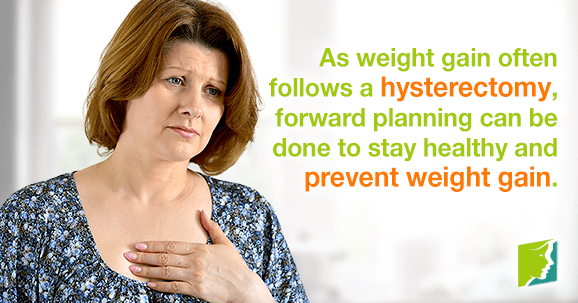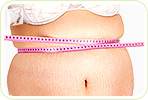Weight gain is commonly associated with hysterectomies, and many women claim their weight does increase after the operation. The reasons for this, however, might have less to do with the procedure itself and more to do with other factors. Read on for more information about the link between a hysterectomy and weight gain.
What Is a Hysterectomy?
This procedure involves the removal of the woman's reproductive organs. There are four types of hysterectomy:
Total hysterectomy. The womb and cervix are removed. This is the most common type.
Subtotal hysterectomy. Just the womb is removed, leaving the cervix in place. Some women prefer this, since it allows them to continue the necessary cervical stimulation for reaching orgasm.
Total hysterectomy with bilateral salpingo-oophorectomy. This removes the womb, cervix, fallopian tubes, and ovaries. This procedure usually induces early or premature menopause.
Radical hysterectomy. The womb, fallopian tubes, part of the vagina, ovaries, lymph glands, and fatty tissue are all removed. This operation is generally only performed under extreme circumstances, such as in response to an aggressive cancer.
What Are the Side Effects?
A hysterectomy can cause certain side effects, as outlined below:
- Bowel and bladder disturbances
- Vaginal discharge
- Menopausal symptoms
- Emotional effects
Weight Gain and Hysterectomy
Many women also report weight gain as a consequence of having a hysterectomy, and although there is some evidence to suggest this could be the case, there is little evidence to suggest the hysterectomy itself actually causes the weight gain.
Although weight gain is commonly associated with estrogen fluctuations in menopausal women, this does not occur in women with hysterectomies - rather, hormone production stops abruptly. Thus, if weight gain is a factor, other forces may be coming into play.
Indeed, as women get older, they naturally become more sedentary. This could be due to physical restrictions or illness, or simply a response to the natural drop in energy levels. A hysterectomy will usually coincide with this time in a woman's life, and she will be forced to be less active during recovery, establishing a seemingly obvious connection. It is more likely, however, to be caused by lifestyle factors in most women.
Of course, hormones are not completely blameless; studies have confirmed that changes in estrogen levels have an effect on the way fat accumulates, meaning that where the weight is deposited generally shifts from the hips to the waist. This explains the “spare tire” problem that many women have after a hysterectomy.
In conclusion, weight gain is not an inevitable consequence of a hysterectomy, but the operation does have some kind of ripple effect. The good news is, however, that with a bit of forward planning and awareness, lifestyle choices can be made for healthy and weight gain-free post-hysterectomy years. Read about healthy approaches for treating weight gain.
Sources
- Davis, S.R. et al. (2012). Understanding weight gain at menopause. Climacteric, 15(5), 419-429. doi:10.3109/13697137.2012.707385
- The Hysterectomy Association. (2008). Hysterectomy and weight gain. Retrieved July 16, 2014, from http://www.hysterectomy-association.org.uk/hysterectomy_risks/hysterectomy-and-weight-gain/
- National Health Service UK. (2014). Hysterectomy. Retrieved July 16, 2014, from http://www.nhs.uk/Conditions/Hysterectomy/Pages/Introduction.aspx
- Northrup, C. (2006). The Wisdom of Menopause. New York: Bantam Dell.
- Thacker, H.L. (2009). The Cleveland Clinic Guide to Menopause. New York: Kaplan Publishing.
- Utian, W.H.. (n.d.). Ask the Expert. Retrieved July 16, 2014, from http://www.healthywomen.org/content/ask-expert/1775/hysterectomy-and-weight-gain




